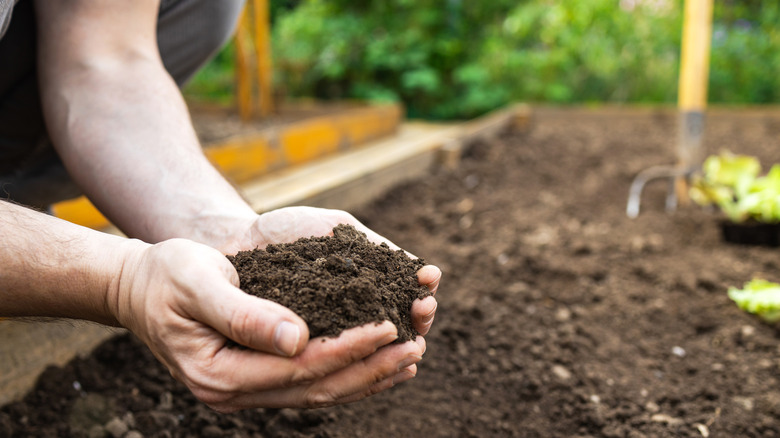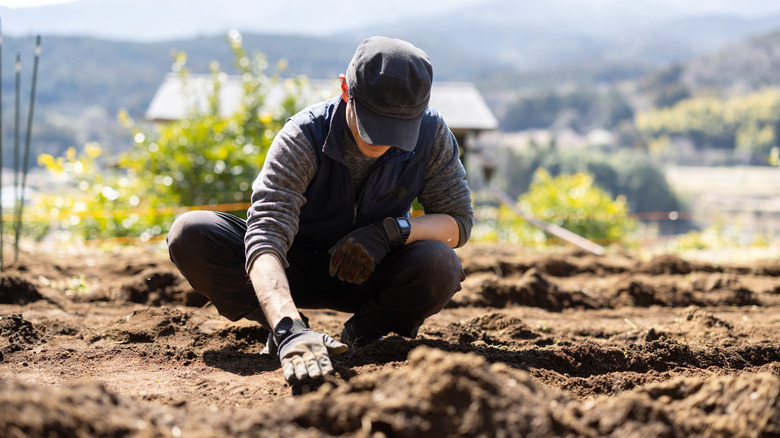Soil Conditioner Vs. Fertilizer: How To Tell Which Is Best For Your Garden
When visiting your local garden center, you're often met with an overwhelming array of choices for improving your garden. You may have come across products labeled "soil conditioner" along your gardening journey and wondered, "what are soil conditioners and do I need to use them in my garden?" And do you need to make a choice between fertilizer and soil conditioner? The answer is no, because these products serve different purposes.
Fertilizers deliver needed nutrients to the soil, and therefore to plants, while soil conditioners are intended to improve soil quality, structure, and ability to support plant growth. Conditioners usually have low nutrient content and help with water retention and nutrient accessibility. They contribute to balanced pH levels in soil, along with aeration and support for beneficial microorganisms. While many soil conditioners are commercial products with "soil conditioner" on the label, others are DIY, like compost, or items you may already have on hand, such as humus, aged manure, peat moss, sand, sawdust, or topsoil. Soil conditioners can be organic, like aged manure, or inorganic, like sand.
Prep your soil with both fertilizer and soil conditioners
Use a soil conditioner when your soil isn't producing the way you'd like it to or as well as it has in the past. You can use it when you observe issues like poor drainage, soil compaction (signaling the need for aeration), or water permeating the soil very slowly. Soil conditioners address these problems by increasing soil pore space, improving air flow, and enabling water to travel easily through the soil. Conditioners create a more hospitable environment for roots by improving soil structure so roots can grow deeply into the soil to access water and nutrients.
Fertilizers are all about growth, so apply them when you want plants to grow and produce flowers, fruits, or vegetables. They support plants in their peak growth period as they exert energy for all that production, along with growing roots and leaves. Use fertilizer if seed packets prescribe it, and don't be afraid to ask for recommendations. Advising on whether to fertilize a given plant is just one way your local extension service can help you grow a gorgeous garden.
One school of thought suggests that unsuitable fertilizer use can lead to numerous soil problems, while soil conditioners are versatile in addressing specific soil issues. But the great news is that you don't have to choose between fertilizer and soil conditioners as you prep your soil for successful planting; you can use both as needed. But first, avoid one of the biggest mistakes you're making when preparing soil for your garden – failing to get your soil tested to see what it actually needs. Armed with that information, you can make thoughtful choices about fertilizer and soil conditioners.

